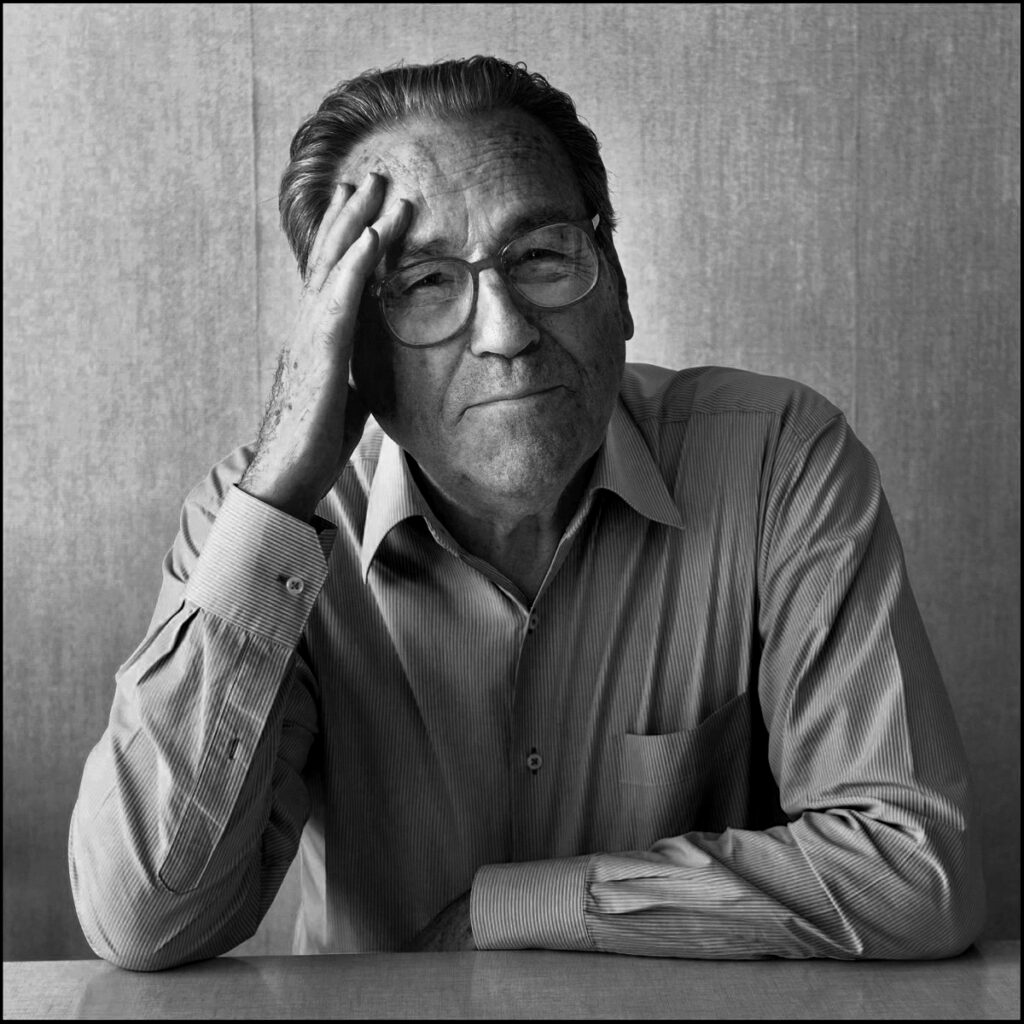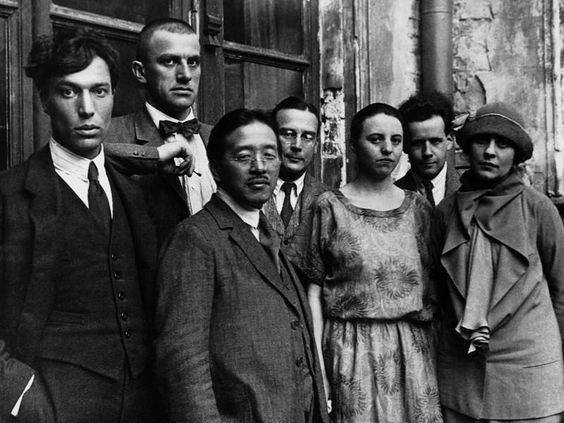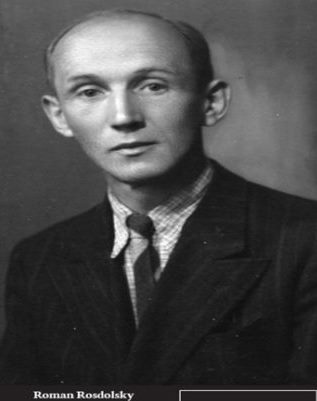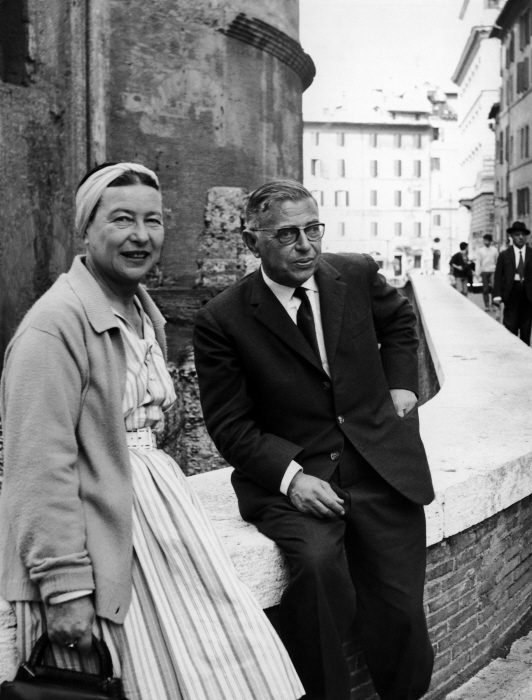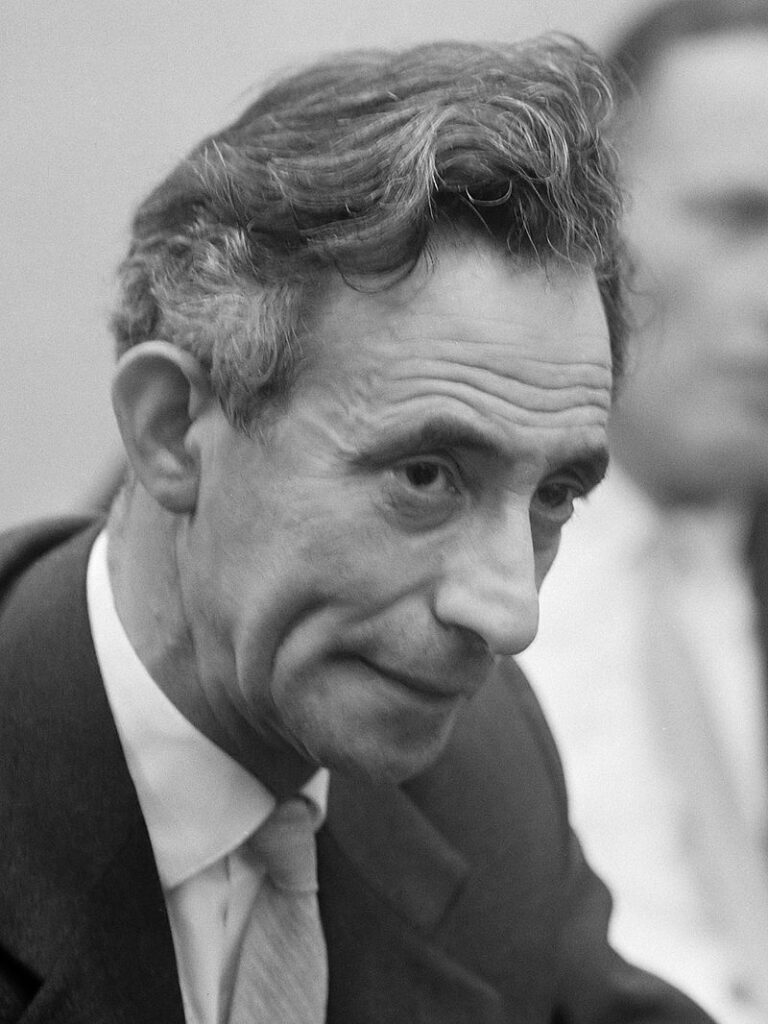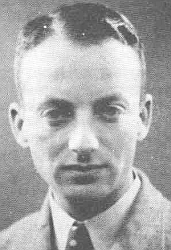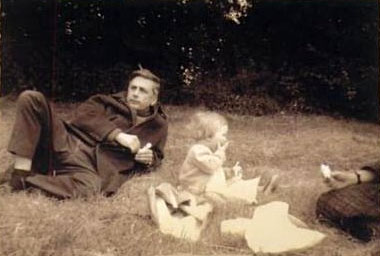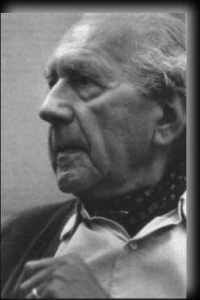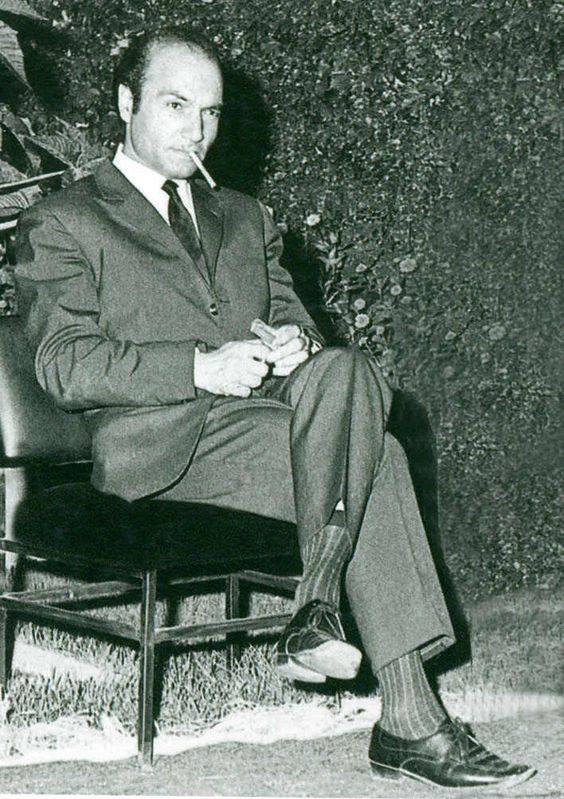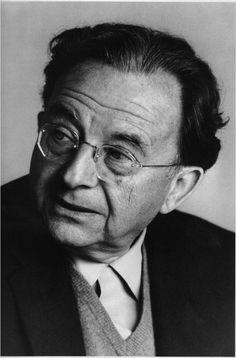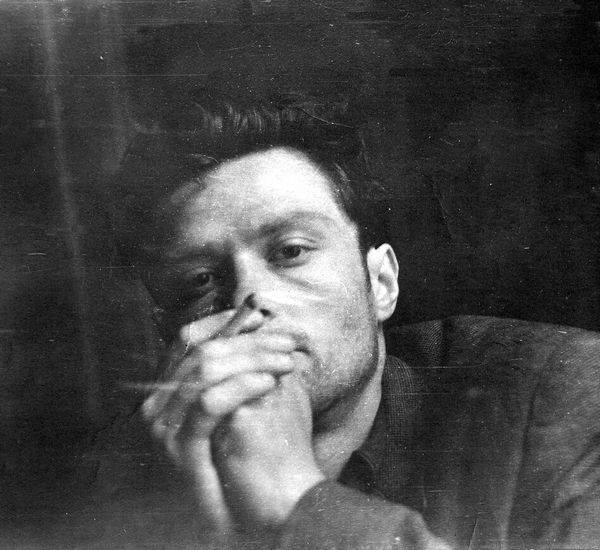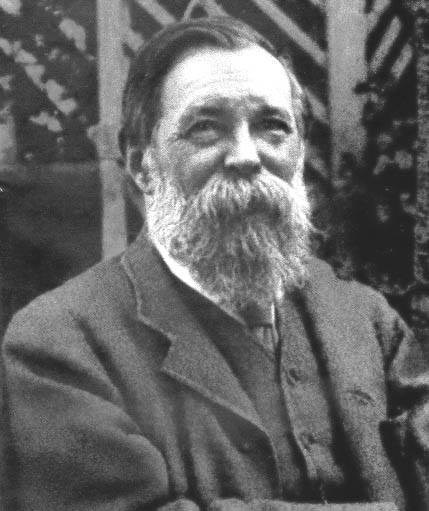Figures
Lucien Seve
The philosopher and communist militant Lucien Sève died, aged 93, on the 23rd of March 2020. Lucien had been a close friend for over thirty years. The experience of reading his books, and then of our regular meetings, played a decisive role in my life. Regardless of whether we agreed or disagreed on a question, he was always a kindly and uncompromising interlocutor, unceasingly generous, brilliant and funny – a man of exceptional humanity. This text, written in sadness and anger, has no other ambition than to be a homage and an invitation to read or reread his – insufficiently known and discussed – work.
Vladimir Mayakovsky
Revolutionary Russia’s avant-garde with the Japanese writer Tamiji Naito, Moscow, May 1924 (photo by Anatoly Cemenka). From left to right: Pasternak, Mayakovsky, Naito, (diplomat) Arseny Voznesensky, Olga Tretyakova, Eisenstein, and Lilia (or Lili) Brik. Mayakovsky always seemed to tower over these gatherings, as he does in this photo with that ubiquitous fag.
Roman Rosdolsky (1898–1967)
In 1948 the Ukrainian Marxist Rosdolsky wrote a devastating critique of the “nationality politics” of the Neue Rheinische Zeitung, the paper that Marx and Engels published and used as the platform for their interventions in the uprisings and struggles that surged around the “bourgeois” revolutions of 1848. Rarely has any Marxist exposed the limitations of any of the concrete political stances taken by Marx and/or Engels with more frankness (less restraint) or more theoretical lucidity. Rosdolsky’s critique focused on the way the paper viewed the aspirations of the Czechs, Croats, Ukrainians and other East European nationalities, starting with the unrestrained racism of (especially) its Vienna correspondent. To Rosdolsky the former (the views espoused by Marx and Engels) mattered more than the latter (the outrageous Slavophobia of this or that correspondent), since it affected the way revolutionary socialists would view struggles for national emancipation.
Sartre and his Critique of Dialectical Reason
In his Critique of Dialectical Reason, Sartre recasts Marx’s notion of alienation as our experience of the practico-inert. Alienation, Sartre suggests, is our ‘experience of the materialised result’. ‘It is no longer the positive moment in which onedoes, but the negative moment in which one is produced in passivity by what the practico-inert ensemble makes out of what one has just made’ (vol. 1, p. 337). If we say, the worker produces capital, then that is simply a shorthand way of saying what Sartre has just said. ‘What one has just made’, the product of one’s labour, becomes capital (a commodity that belongs to the capitalist) thanks to capital (thanks to a ‘practico-inert ensemble’ which is the accumulation of capital and the system bound up with it). As a wage labourer the worker is a ‘worked Thing’ (p.325), and as capital ‘worked matter’ is the ‘inert meaning of the worker’ (p. 328).
Benjamin Aäron Sijes
Much of the work of Dutch historian Benjamin Aäron Sijes (1908-1981) revolved around the Second World War. He wrote about the persecution of Roma and Jews by the Nazis, forced labour of Dutch workers during the occupation and the February strike of 1941 that broke out in protest against the anti-Semitic measures of the occupiers.
Nico (Niek) Engelschman
Nico (Niek) Engelschman (1913-1988) was a Dutch actor, resistance member, and pioneering gay-rights activist. During the Nazi-occupation, members of the socialist group around the journal De Vonk (The Spark) met at his house. Together with his brother, Engelschman helped several Jews escape deportation by finding hiding places for them. He would later play down his activities during the occupation.
Chris Pallis/Maurice Brinton
‘The concept that society must necessarily be divided into “leaders” and “led”, the notion that there are some born to rule while others cannot really develop beyond a certain stage have from time immemorial been the tacit assumptions of every ruling class in history. For even the Bolsheviks to accept them shows how correct Marx was when he proclaimed that “the ruling ideas of each epoch are the ideas of its ruling class”.’
Alfred Sohn-Rethel
Alfred Sohn-Rethel (1899–1990), who in his major work Intellectual and Manual Labour, completed in 1951 but published two decades later, argued that the ‘real abstraction’ of exchange is the true origin of abstract (mathematical) thinking and, through that, of scientific thought more generally. Thus, the evolution of money and that of science run parallel to each other, both beginning in archaic/classical Greece with the invention of coinage c.680. This thesis, of ‘the secret identity of commodity form and thought form’, remains unique in being the only major attempt to integrate epistemology into historical materialism via Kant, or the problem Kant poses in theCritique of Pure Reason, and Marx’s theory of value. (For later development on broadly similar lines see Richard Seaford,Money and the Greek Mind (2004) and R. W. Müller,Geld und Geist (1977))
Ali Shari‘ati (1933–1977)
Looking at him you’d scarcely guess that this suave figure inspired a whole generation of Iranian youth to turn to radical Left politics which included the kind of insurrectionary politics associated then with the Mojahedin-e Khalq, an armed struggle group that sought to reconcile a modernist version of Islam with left-wing ideas of social justice and anti-capitalism.
Erich Fromm
Erich Fromm (1900–1980), German-American social psychologist and philosopher, and a fine exemplar of the Weimar psychoanalytic Left. The Frankfurt Institute’s massive survey of German working-class attitudes was led by Fromm, but in 1930 when the survey was conducted ‘The questions failed to register anti-semitism or ethnocentrism; the staff did not yet appreciate how important these sentiments were to Hitler’s appeal’, says his biographer Lawrence Friedman (The Lives of Erich Fromm, p. 42). This would change radically in the next few years as Fromm developed a deeper understanding of the real groundwork of fascism.
Evald Ilyenkov
Evald Ilyenkov (1924–1979), the brilliant Russian philosopher whose suicide in March 1979 was directly linked to his growing isolation and ostracism in more orthodox academic circles in Russia. One source refers to a ‘witch hunt’ against him.
Friedrich Engels
In 1865 Marx had a passing fit of pedological materialism. The French naturalist Pierre Trémaux published a treatise explaining human variety in terms of soil characteristics. Marx was actually impressed by this and said ‘It [Trémaux’s theory] represents a very significant advance over Darwin [!!]…For certain questions such as nationality, etc., only here has a basis in nature been found’. Luckily for all of us, as Nairn points out, Engels quickly ‘managed to cure Marx of the aberration’.
